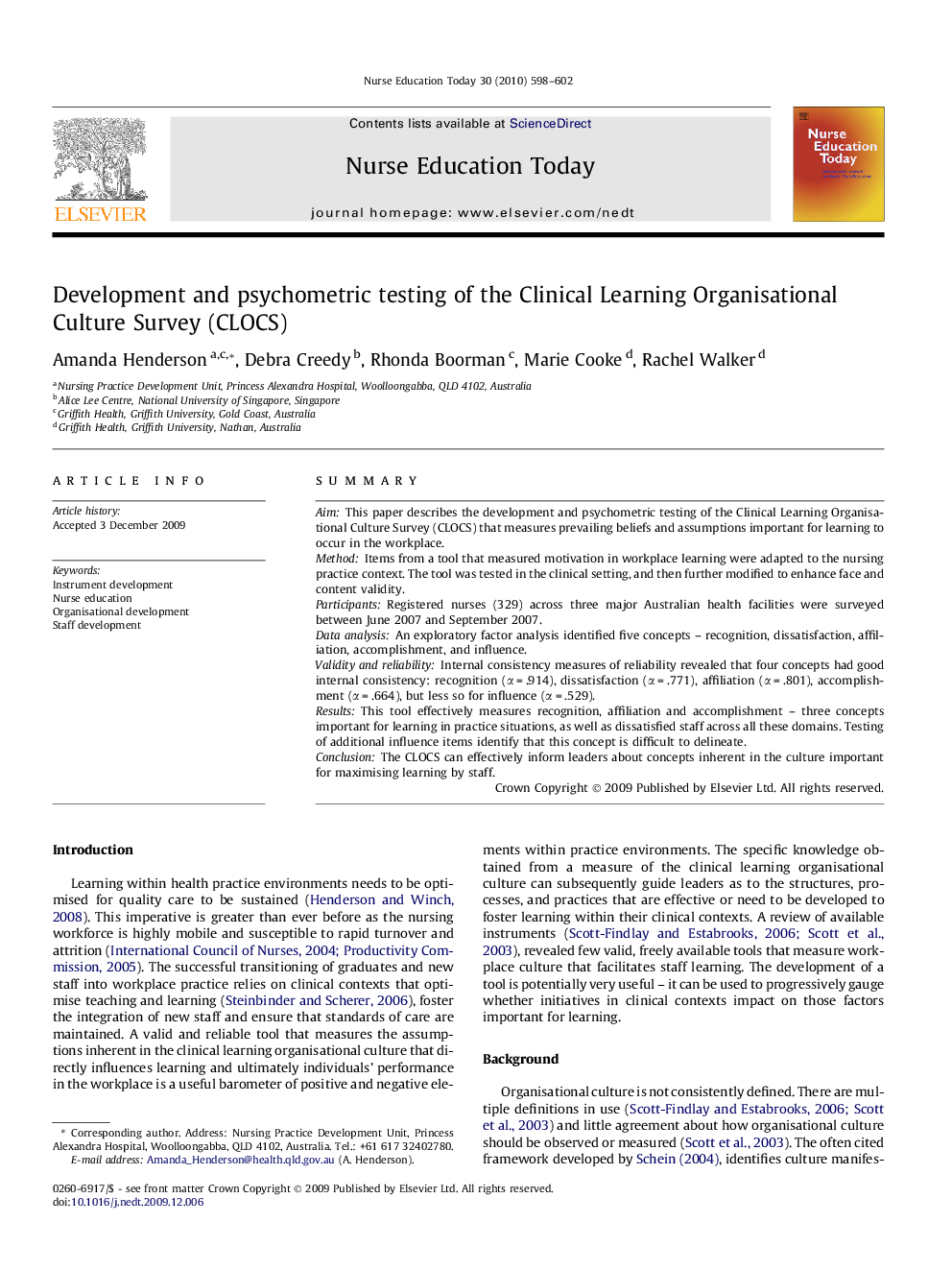| Article ID | Journal | Published Year | Pages | File Type |
|---|---|---|---|---|
| 368831 | Nurse Education Today | 2010 | 5 Pages |
SummaryAimThis paper describes the development and psychometric testing of the Clinical Learning Organisational Culture Survey (CLOCS) that measures prevailing beliefs and assumptions important for learning to occur in the workplace.MethodItems from a tool that measured motivation in workplace learning were adapted to the nursing practice context. The tool was tested in the clinical setting, and then further modified to enhance face and content validity.ParticipantsRegistered nurses (329) across three major Australian health facilities were surveyed between June 2007 and September 2007.Data analysisAn exploratory factor analysis identified five concepts – recognition, dissatisfaction, affiliation, accomplishment, and influence.Validity and reliabilityInternal consistency measures of reliability revealed that four concepts had good internal consistency: recognition (α = .914), dissatisfaction (α = .771), affiliation (α = .801), accomplishment (α = .664), but less so for influence (α = .529).ResultsThis tool effectively measures recognition, affiliation and accomplishment – three concepts important for learning in practice situations, as well as dissatisfied staff across all these domains. Testing of additional influence items identify that this concept is difficult to delineate.ConclusionThe CLOCS can effectively inform leaders about concepts inherent in the culture important for maximising learning by staff.
